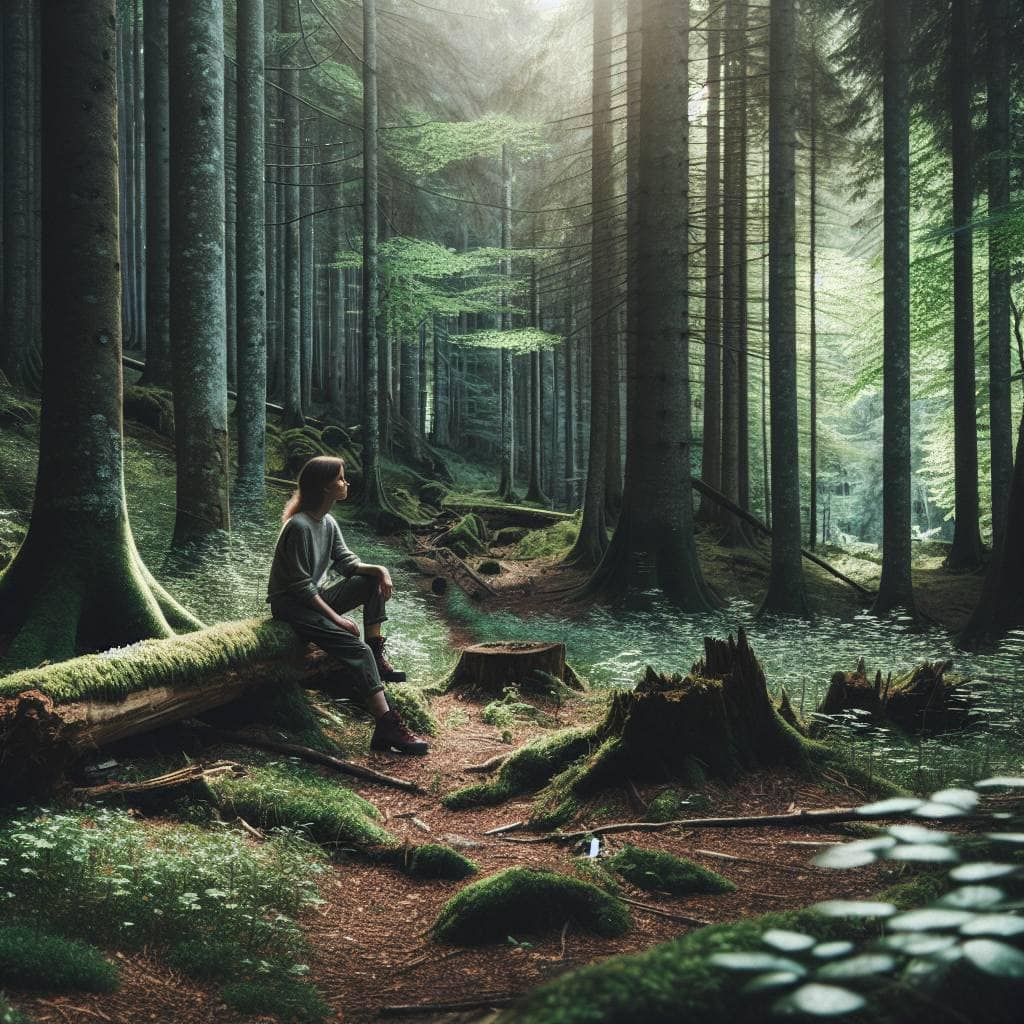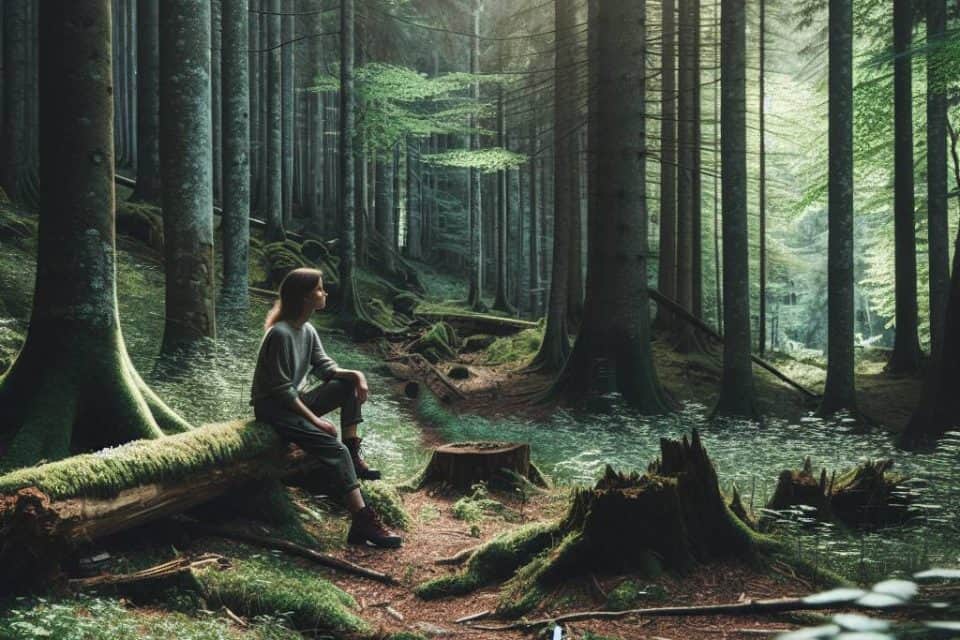I once spent a weekend in the woods, determined to “find myself” after a particularly brutal week of urban chaos. Picture it: me, a city slicker with hiking boots still bearing the price tag, convinced that nature held the secrets to my spiritual rebirth. Spoiler alert: it didn’t. Instead, I found myself locked in a silent battle with my own thoughts, surrounded by the deafening orchestra of insects and rustling leaves. There was no grand epiphany, no mystical transformation—just an unsettling realization that solitude is a double-edged sword. It’s the mirror that doesn’t lie, one that reflects both the beauty and the beast within.

But here’s the thing: that uncomfortable weekend planted the seeds of something profound. Solitude isn’t a magical cure-all, but it’s the crucible where genuine self-reflection occurs. In this article, we’ll dive into why being alone, truly alone, is necessary to peel back the layers of noise that clutter our minds. We’ll explore the gritty, unvarnished truth of spiritual growth, the kind that demands you disconnect from the endless buzz and confront the raw, unedited version of yourself. So, if you’re ready to embrace the messiness of solitude, let’s embark on this unapologetically real journey together.
Table of Contents
How I Found Inner Peace in the Chaos of My Own Mind
In the relentless hum of city life, I stumbled upon a truth as stark as the neon lights reflecting off rain-slicked streets: solitude is the gritty, no-filter mirror that reveals the rawest version of yourself. It wasn’t about finding a quiet corner or a serene landscape; it was about the deliberate act of disconnecting from the constant cacophony of external voices. I found myself confronting my own thoughts, stripped of the comforting noise that usually drowns them out. And man, it was terrifying. But in that unsettling stillness, I began to see the scattered pieces of my mind more clearly, like a jigsaw puzzle starting to make sense.
There’s a kind of rugged beauty in being alone, in letting yourself unravel without the pressure to perform for an audience. It’s an exercise in vulnerability, and it doesn’t come with a guidebook. I learned to sit with discomfort, to let the chaos swirl around until it settled on its own. During those moments, clarity emerged not as a sudden epiphany but as a slow, deliberate understanding. I realized that inner peace isn’t a destination but a fleeting state that requires constant nurturing. It’s about embracing the solitude, using it as a tool for self-reflection, and finding courage in the silence. That’s where the spiritual growth happened—not in grand gestures but in the quiet, persistent work of untangling my thoughts and finding solace in my own company.
The Brutal Beauty of Alone Time
In the raw silence of solitude, you’re forced to confront the parts of yourself that daylight hides. Only then can the real journey to inner peace begin.
The Unseen Gift of Solitude
In the end, solitude isn’t the enemy—it’s the uninvited guest that leaves behind unexpected gifts. Sure, it barges in unannounced, making you squirm with the discomfort of confronting the raw, unfiltered reality of who you are. But in those moments, when the noise of the world fades to a whisper, you’re left with the stark, vivid truth—a truth that’s both liberating and terrifying. It’s in that quiet chaos that I’ve found the seeds of genuine growth, where the echoes of my own thoughts finally made sense, and the disconnected fragments of my being stitched themselves into a coherent whole.
But let’s not sugarcoat it. This journey into solitude is not a pleasant stroll through a sunlit park. It’s more akin to a relentless trek through the wilderness of your own mind, where every step is a battle against the seductive pull of conformity. Yet, this solitary path is the only way to truly disconnect from the superficial, to dig deep into the marrow of existence and emerge on the other side with a soul that’s not just a reflection of societal expectations. It’s about embracing the messiness and the beauty of being truly alone, and realizing that the peace you seek isn’t found in the absence of noise, but in the silent acceptance of self.
